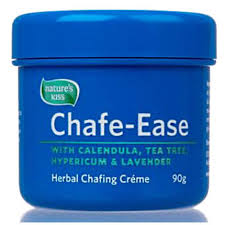chafe
英 [tʃeɪf]
美 [tʃeɪf]
- vt. 擦破;擦热;擦痛;激怒
- vi. 擦伤;磨擦;激怒
- n. 擦伤;气恼
- n. (Chafe)人名;(尼日利)沙费;(英)蔡菲
星级词汇:

记忆方法
chafe :谐音:“擦肤”=擦痛
中文词源
chafe 擦痛,懊恼
来自拉丁词calefacere, 擦热。cal, 热,见calorie, 卡路里, -fac, 做,使,见fact, beautify.现词现义主要指激怒。
英语词源
- chafe (v.)
- early 14c., chaufen, c. 1300, "be provoked;" late 14c. in literal sense "to make warm, to heat," also intransitive, "to grow warm or hot," especially (early 15c.) "to warm by rubbing," from Old French chaufer "heat, warm up, become warm" (12c., Modern French chauffer), from Vulgar Latin *calefare, from Latin calefacere "to make hot, make warm," from calere "be warm" (see calorie) + facere "to make, do" (see factitious).
Figurative sense from late 14c. include now-obsolete "kindle (joy), inspire, make passionate" as well as "provoke, vex, anger." Sense of "make sore by rubbing" first recorded 1520s. Related: Chafed; chafing.
权威例句
- 1. His wrists began to chafe against the cloth strips binding them.
- 他的手腕开始被捆绑的布带磨得很痛。
- 2. I see him chafe and fret at every pore.
- 我看见他非常暴躁.
- 3. The foaming waves chafe against the rocky shore.
- 汹涌的波涛猛烈地冲击着礁岸.
- 4. A stiff collar may chafe your neck.
- 硬的衣领会擦伤你的脖子.
- 5. She turned him in the bed so that the sheets wouldn't chafe his skin into sores.
- 她帮他翻了个身,免得他生褥疮。